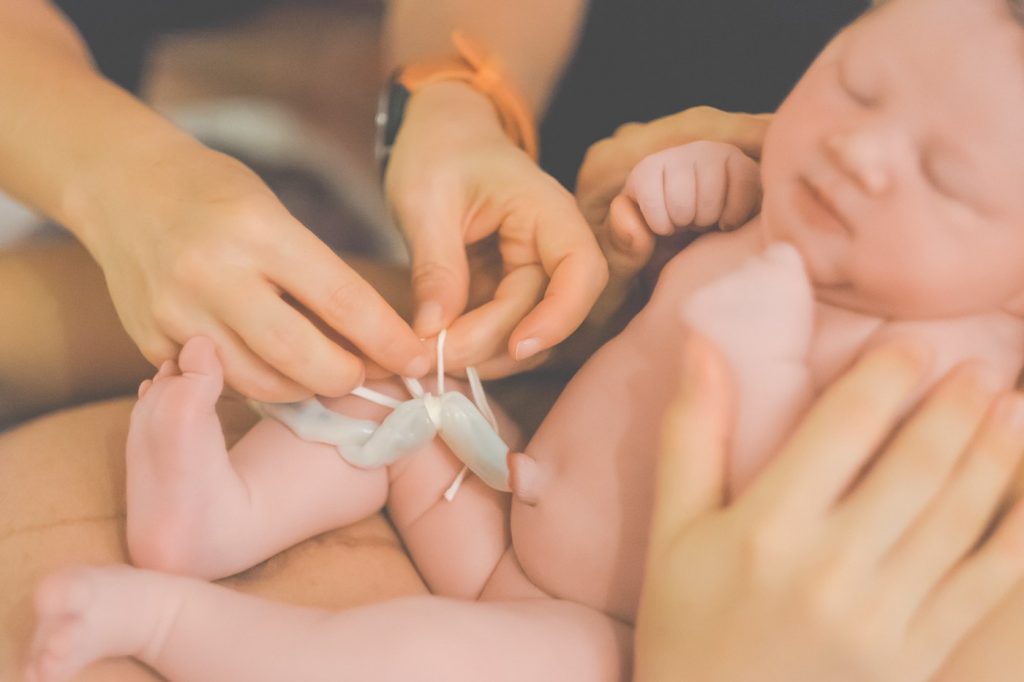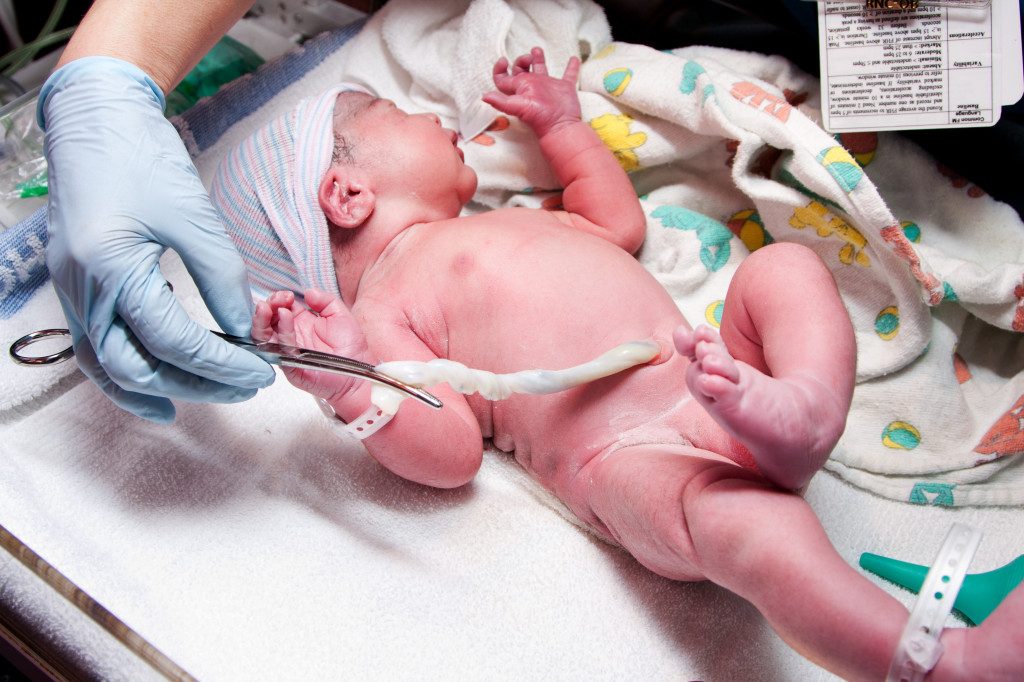
During the last few weeks of pregnancy you may begin to get stress and worry more about the well-being of the unborn baby. One concern that the doctor could address is whether baby’s umbilical cord is compressed or not. Umbilical cord compression is due to the pressure on the umbilical cord.
This umbilical cord compression occur either during pregnancy or during labor. Umbilical cord compression occurs in approximately 1 in 10 deliveries. The majority of compressions will occur during labor with the most of them with less complications.
Umbilical cord compression can also occur during the later stages of pregnancy when your baby begins to move around more vigorously. These compressions during pregnancy and labor are mostly mild periodic compression’s that are harmless. However, there are cases where the compression on the umbilical cord can be more extreme and last for longer periods of time. Considering that the umbilical cord allows to pass vital nutrients and oxygen to the baby, when there is extreme compression lasting for longer periods of time, it may lead to a decrease in oxygen and blood flow to the baby. This compression can also cause changes in your baby’s heart rate.
Umbilical cord compression’s may affect baby’s heart rate and it can lead to complications like variable deceleration. Variable deceleration involves a fall in your baby’s heart rate; the heart rate must be less than 115 bpm and must last more than 15 seconds but less than 10 minutes.
Umbilical cord compression can cause changes in your baby’s blood pressure due to the changes in heart rate and due to lack of oxygen. During umbilical cord compression the vein on the umbilical cord get compressed leading to carbon dioxide accumulation in baby’s blood, which produces respiratory acidosis.
If the umbilical cord becomes compressed during pregnancy or labor, the risk of damage is proportional to the duration of time in which the umbilical cord get compressed. When the umbilical cord is compressed for a prolonged period of time, it causes decrease in blood flow and oxygen to the baby’s brain. This may lead to a risk of brain damage to your baby. A compressed umbilical cord may also lead to short episodes of fetal hypoxia, which includes baby being deprived from oxygen in the womb and can lead to other health complications including death.

During labor, the umbilical cord gets stretched and compressed, leading to umbilical cord compression. While you are pregnant, the hyperactivity of your baby can cause umbilical cord compression and the other cause can be preterm premature rupture of membranes (PROM).
Preterm premature rupture of membranes causes the rupture of the unborn baby’s membranes before the onset of labor. When PROM occurs before 32 weeks of pregnancy, there are chances that the umbilical cord compression can occur about 32 to 76 percent of the time. Umbilical cord prolapse, where umbilical cord descending into the birth canal before the baby during labor, is another possible cause of a compressed umbilical cord.
Umbilical cord compression can be diagnosed before labor with the help of one of two doctors test; either a fetal Doppler or an ultrasound. Unfortunately there are no visible signs of umbilical cord compression to be found out without the help of a doctor.

One of the leading treatments for umbilical cord compression is amnioinfusion. It is a process of introducing a saline solution, at room temperature, into the uterus during labor in order to relieve pressure that can potentially lead to the umbilical cord becoming compressed.
When umbilical cord compression is minor, treatment is done to increase the mother’s oxygen and therefore to increase the blood flow through the umbilical cord. In severe cases of umbilical cord compression there should be a constant monitoring of your unborn baby by your healthcare provider and emergency action must be taken in case of any signs of distress. If your baby shows signs of distress or if baby’s heart rate suddenly drops below the heart rhythm, a C-section may be necessary to ensure baby’s health.
It is the most powerful creation to have life growing inside of you.There is no bigger gift